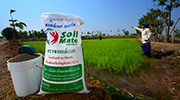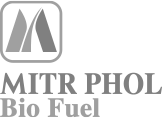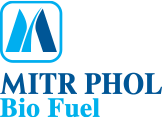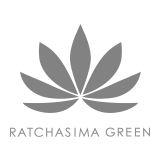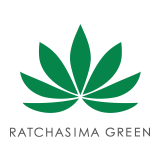Ethanol Business Overview
Ethanol Business Overview
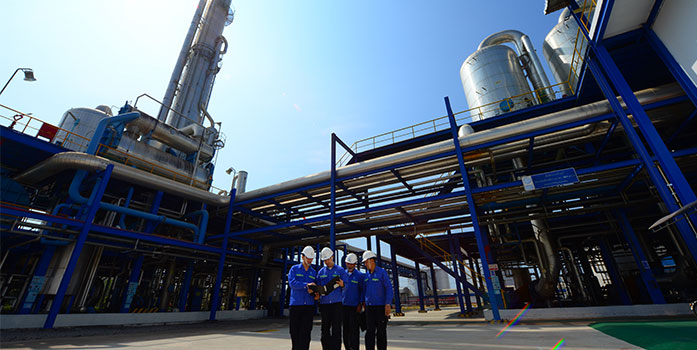
Background and history
With a commitment to preserve our environment and make the world a better place, as well as in response to the government’s policy for alternative energy and technological advancements, Mitr Phol Group made our initial investments in the ethanol business by establishing Mitr Phol Bio Fuel Company Limited.
Our production uses molasses and cane juice as raw materials to make 99.5% ethanol. As the alternative fuel can be made from locally-grown plants easily found in Thailand such as sugarcane and cassava, our ethanol business is a way in which we can help uplift the quality of living for Thai farmers, while lessening the country’s dependence on imported crude oil. Ethanol also helps to reduce global warming.
Mitr Phol Bio Fuel’s ethanol production plants
Currently, Mitr Phol Bio Fuel operates three plants, namely:
• The Phu Khieo ethanol plant -- the first plant established in 2005 in Phu Khieo district, Chaiyaphum province—produces ethanol from molasses. Production capacity is 500,000 liters per day.
• The Kalasin ethanol plant – the second plant established in 2006 in Kuchinarai district, Kalasin province – produces ethanol from molasses. Production capacity is 230,000 liters per day.
• The Dan Chang ethanol plant – the third plant established in 2009 in Dan Chang district, Suphanburi province – produces ethanol from molasses. Production capacity is 200,000 liters per day.
In addition to these ethanol plants, Mitr Phol Bio Fuel has entered into a joint venture with Pha Daeng Industry Public Company Limited and Thai Oil Public Company Limited to establish an ethanol production plant that uses cane juice as the raw material. The JV—Mae Sod Clean Energy Company Limited – was established in 2007 in Mae Sod district, Tak province.
With a production capacity of 230,000 liters per day, Mitr Phol Group’s ethanol plants collectively produce around 1.1 million liters of ethanol per day, equivalent to 380 million liters per year, making Mitr Phol the biggest ethanol producer in ASEAN.
Awards and recognitions
• Thailand Energy Award 2015
• Received Advanced Biofuel (D5) certification from US EPA in 2013
Raw materials and ethanol production process
The main raw material used in ethanol production is molasses that are byproducts from sugar production within Mitr Phol Group. The process begins with fermenting the molasses with yeast in an airless environment to turn sugar into ethanol. The ethanol from the fermentation process is then distilled until its purity level reaches 95%, before it is separated further until the result is 99.5% pure ethanol. It is then stored in storage tanks and await to be sold.
Sales channels and customer groups
Domestic sales
• Ethanol is sold to oil companies in Thailand such as PTT, Bangchak, Shell, Esso, and Chevron to use in the production of gasohol.
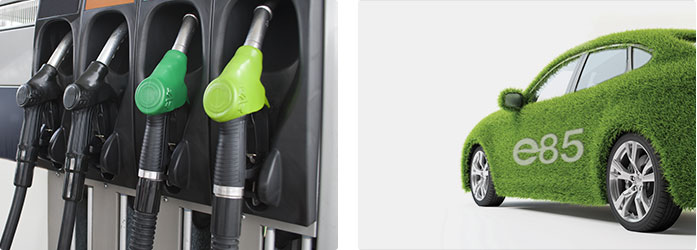
เอทานอล...พลังงานหมุนเวียนที่ไม่มีวันหมด
เชื้อเพลิงเอทานอลถือเป็นพลังงานหมุนเวียน (Renewable Energy) ประเภทหนึ่ง ซึ่งเราสามารถปลูกพืชและนำมาเป็นวัตถุดิบในการผลิตได้ไม่มีวันหมด โดยสามารถใช้เป็นส่วนผสมกับน้ำมันเบนซินในอัตราส่วนต่างๆ ซึ่งเราเรียกว่าน้ำมันแก๊สโซฮอล์ หรือผสมกับน้ำมันดีเซลก็จะได้เป็นน้ำมันดีโซฮอล์ นอกจากนี้ยังสามารถใช้เอทานอลบริสุทธิ์เป็นเชื้อเพลิงโดยตรงได้อีกด้วย การใช้เชื้อเพลิงเอทานอลในอัตราส่วนที่เหมาะสมกับเครื่องยนต์ จะสามารถลดการปลดปล่อยมลพิษได้เกือบทุกชนิด เช่น คาร์บอนมอนอกไซด์ คาร์บอนไดออกไซด์ ไฮโดรคาร์บอน เบนซิน และไนโตรเจนออกไซด์ เป็นต้น
น้ำมันแก๊สโซฮอล์
น้ำมันแก๊สโซฮอล์ คือ น้ำมันเบนซินผสมกับเอทานอลในสัดส่วนต่างๆ ปัจจุบันประเทศไทยได้มีการส่งเสริมการใช้น้ำมันแก๊สโซฮอล์ในสัดส่วนผสมเอทานอล 10% 20% และ 85% จึงเรียกชื่อตามสัดส่วนผสมของ เอทานอลว่าน้ำมันแก๊สโซฮอล์ E10 E20 และ E85
เอทานอล...พลังงานทดแทนแสนสะอาด
• แต่เดิมนั้นเชื้อเพลิงที่ใช้ในรถยนต์คือน้ำมันที่ทำมาฟอสซิล ซึ่งเมื่อใช้แล้วก็จะปล่อยก๊าซคาร์บอนไดออกไซด์ออกไปสู่อากาศ ในทางตรงกันข้ามเอทานอลเป็นน้ำมันที่ผลิตจากพืช เมื่อมลพิษปล่อยออกมาก็จะถูกต้นไม้รวมถึงอ้อยดูดซับออกไป ทำให้เป็นพลังงานที่สะอาดเมื่อเทียบการใช้น้ำมันที่มาจากฟอสซิล
• เอทานอล 1 ลิตร ลดการปลดปล่อย CO2 ได้ 1.55 kgCO2 ปัจจุบันประเทศไทยใช้เอทานอลวันละ 3.5 ล้านลิตร คิดเป็นการใช้เอทานอลประมาณ 1,200 ล้านลิตรต่อปี สามารถลดการปลดปล่อย CO2 ได้ประมาณ 2 ล้านตันต่อปี เทียบเท่าการดูดซับก๊าซคาร์บอนไดออกไซด์ของป่าสักประมาณ 900,000 ไร่ต่อปี
เอทานอลช่วยเพิ่มรายได้ให้เกษตรกร
แต่เดิมนั้นโมลาสไม่ได้มีความต้องการในตลาดมากนัก จึงมิได้ดีมีราคาสูง แต่เมื่อประเทศไทยได้นำโมลาสมาใช้เป็นวัตถุดิบผลิตเอทานอล ก็ทำให้มีความต้องการและราคาเพิ่มขึ้นมากตามลำดับ โมลาสนั้นก็เป็นสินค้าที่นำมาใช้คำนวณราคาอ้อยด้วยเช่นกัน จากกราฟด้านล่าง จะเห็นได้ว่าราคาโมลาสที่นำมาคำนวณเป็นราคาอ้อยในปัจจุบันมีราคาเพิ่มขึ้นสูงกว่าแต่ก่อนอย่างมาก
รถยนต์ที่สามารถเติมน้ำมันแก๊สโซฮอล์ได้ทุกชนิด
• รถยนต์ FFV (Flex Fuel Vehicle) คือรถยนต์ที่สามารถใช้น้ำมันแก๊สโซฮอล์ได้ทุกชนิด ตั้งแต่น้ำมันแก๊สโซฮอล์ 91 แก๊สโซฮอล์ E20 และแก๊สโซฮอล์ E85 ปัจจุบันมีผู้ผลิตรถยนต์ที่จำหน่ายรถยนต์ FFV เป็นจำนวนมาก อาทิเช่น ฮอนด้า มิตซูบิชิ เชฟโรเลต โตโยต้า มาสด้า

Ethanol… the sustainable renewable energy
Ethanol is a type of renewable energy that is high sustainable, as raw materials can be grown and harvested. Ethanol is mixed with benzene in varying ratios to make gasohol. When mixed with diesel, the result is diesohol. Pure ethanol in and of itself can also be used directly as fuel. Using ethanol in ratios appropriate to the engine type can help to reduce emissions of nearly all toxic gases such as carbon monoxide, carbon dioxide, hydro carbon, benzene and nitrogen oxide.
Gasohol
Gasohol is the result of a mixture between benzene and ethanol in varying ratios. Currently, Thailand encourages the use of gasohol mixed with ethanol in the 10%, 20% and 85% ratios. The results are gasohol E10, E20, and E85.
Ethanol… the clean alternative energy
• Traditional gasoline is made from fossil fuels and emits carbon dioxide into our atmosphere. Ethanol, on the contrary, is a plant-based fuel whose emissions are absorbed by trees and plants, making it a much cleaner alternative to oil made from fossil fuels.
• One liter of ethanol reduces carbon dioxide emissions by 1.55 kg CO2. Thailand uses 3.5 million liters of ethanol daily, or approximately 1.2 billion liters every year. This helps to reduce CO2 emissions by about 2 million tons per year, equivalent to CO2 absorption of 900,000 rai of teak forest per year.
Ethanol generates additional income for cane growers
In the past, due to low market demand, prices of molasses were low. However, when Thailand began utilizing molasses as a raw material for ethanol production, both demand and prices rose. Molasses are also used in the calculation of sugarcane prices. From the graph below, molasses prices are considerably higher than in the past.
Cars compatible with all types of gasohol
• Flexible-fuel vehicles are able to run on all types of gasohol, from gasohol 91, gasohol E20, to gasohol E85. Several of the world’s leading car manufacturers such as Honda, Mitsubishi, Chevrolet, Toyota and Mazda now make these flex-fuel vehicles.








